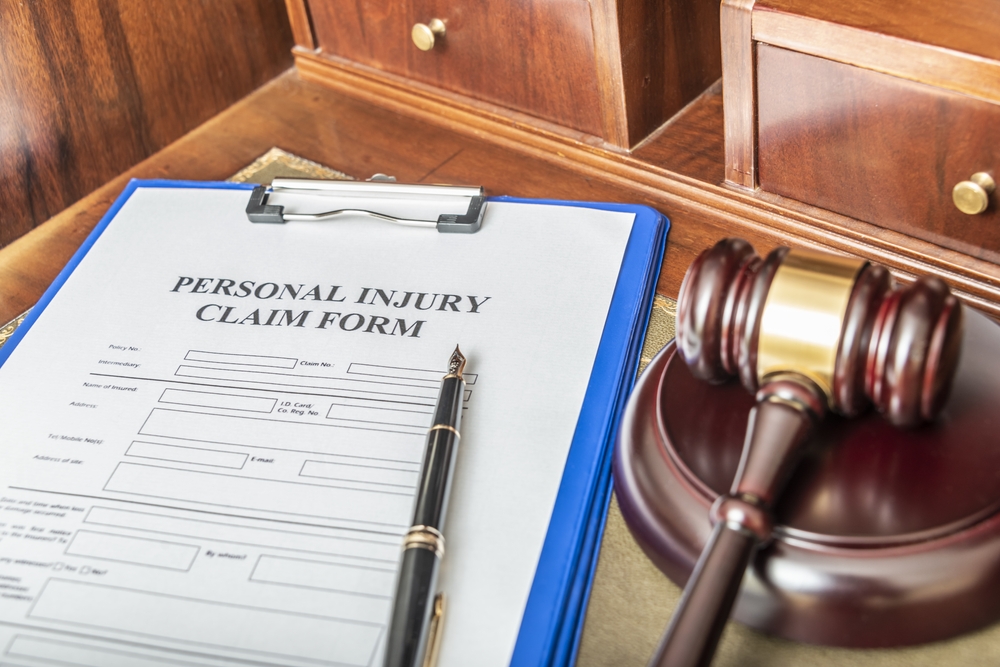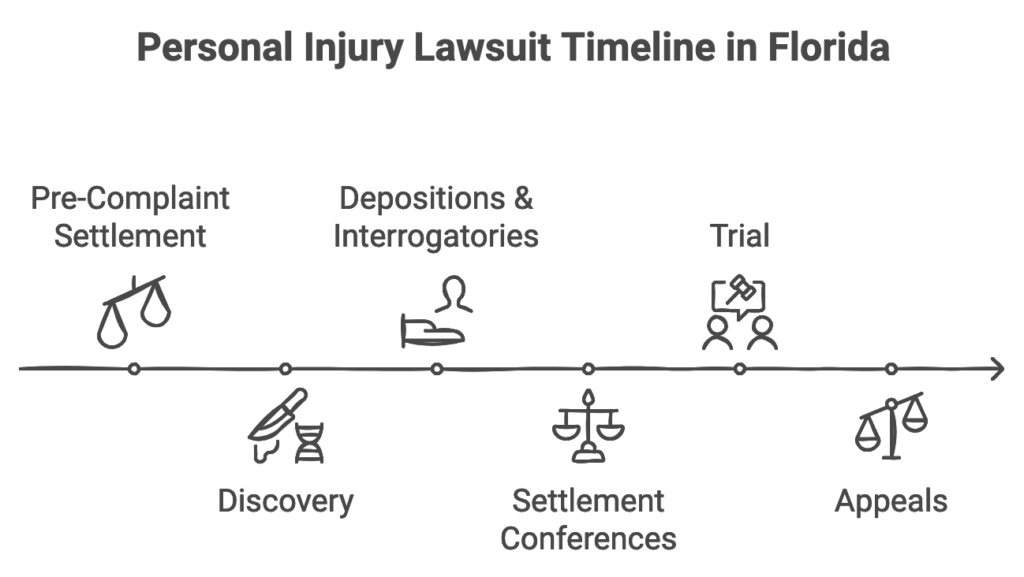
Wondering how long does a personal injury lawsuit take in Florida? A personal injury lawsuit in Florida can take anywhere from 12 to 36 months to resolve. While some cases settle in a few months, others may take several years depending on factors such as:
- Complexity of the case: Simpler cases often settle faster, while more complex or high-value cases may go to trial.
- Injury severity: Plaintiffs may wait for maximum medical improvement (MMI) to ensure fair compensation.
- Disputes over liability: Cases with liability disagreements may take longer to resolve, sometimes requiring a jury trial.
- Appeals: In rare situations, a case can enter the appellate stage, further extending the timeline.
Most personal injury cases in Florida are resolved through settlements, typically within 1 to 3 years.
Eric Rosen, founder of Rosen Injury Law, has extensive experience handling personal injury cases in Florida. With a strong track record of favorable outcomes, Eric understands the intricacies of these cases and is committed to helping clients get the compensation they deserve. His insights in this article are drawn from years of dedicated work helping accident victims throughout the state.
Factors That Affect Personal Injury Lawsuit Timelines
Several factors influence how long a personal injury lawsuit in Florida may take. Understanding these elements can help you anticipate the potential duration of your case:
1. Complexity of the Case
The complexity of a personal injury case is a significant factor in determining how long it will take to resolve. Simpler cases, such as minor car accidents with clear fault, often settle more quickly because there are fewer legal issues to dispute. However, more complex cases involving multiple parties, extensive evidence, or intricate legal questions may take significantly longer. These cases may require more in-depth investigation, expert testimony, and legal analysis, which can add months or even years to the timeline.
2. Injury Severity
The severity of the plaintiff’s injuries also plays a crucial role in how long a lawsuit takes. Plaintiffs who suffer more serious injuries may need extended medical treatment, rehabilitation, or surgeries, which can delay settlement negotiations. In these cases, plaintiffs often wait until reaching maximum medical improvement (MMI) before agreeing to a settlement. MMI is the point at which the full extent of the injury and its long-term impact are known, making it easier to accurately assess the total damages. Waiting for this milestone ensures fair compensation but can extend the lawsuit’s duration.
3. Disputes Over Liability
Liability disputes can significantly extend the timeline of a personal injury lawsuit. If the defendant contests fault or attempts to blame the plaintiff for causing the accident, the case may require further investigation and potentially go to trial. For example, in car accidents, insurance companies may argue that the plaintiff shares a portion of the fault under Florida’s comparative negligence laws. In such cases, both parties may be unwilling to settle quickly, requiring a jury to determine liability, which adds time to the process.
4. Appeals
Even after a trial concludes, the case may not be over if one or both parties file an appeal. Appeals can add months or even years to a lawsuit’s resolution, as appellate courts review legal errors from the initial trial. An appeal is typically filed when a party believes the judge made an incorrect legal ruling or that the jury’s decision was unreasonable based on the evidence. While relatively rare, appeals can significantly prolong the overall timeline of a personal injury case, especially if the appellate court orders a new trial.
The Personal Injury Lawsuit Timeline in Florida
Related Content: What Are the Most Important Things You Should Know about Personal Injury Lawsuits in Florida?

